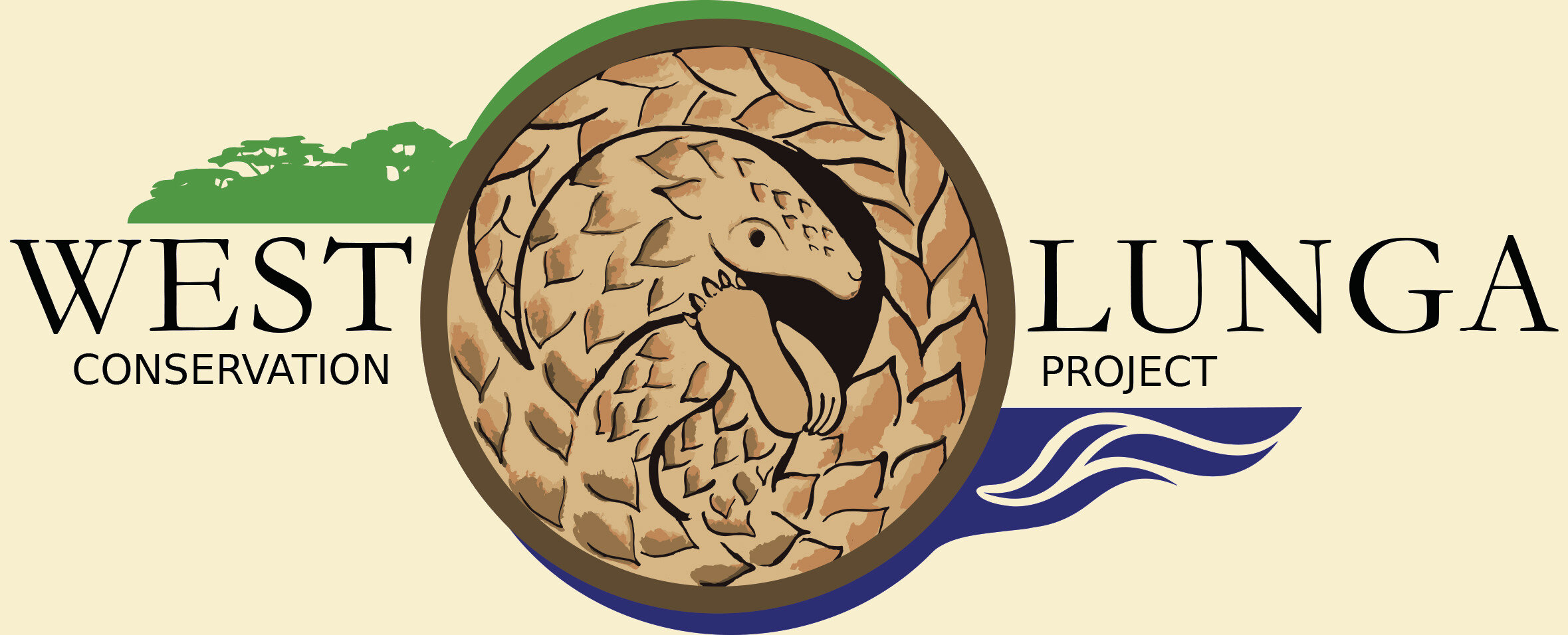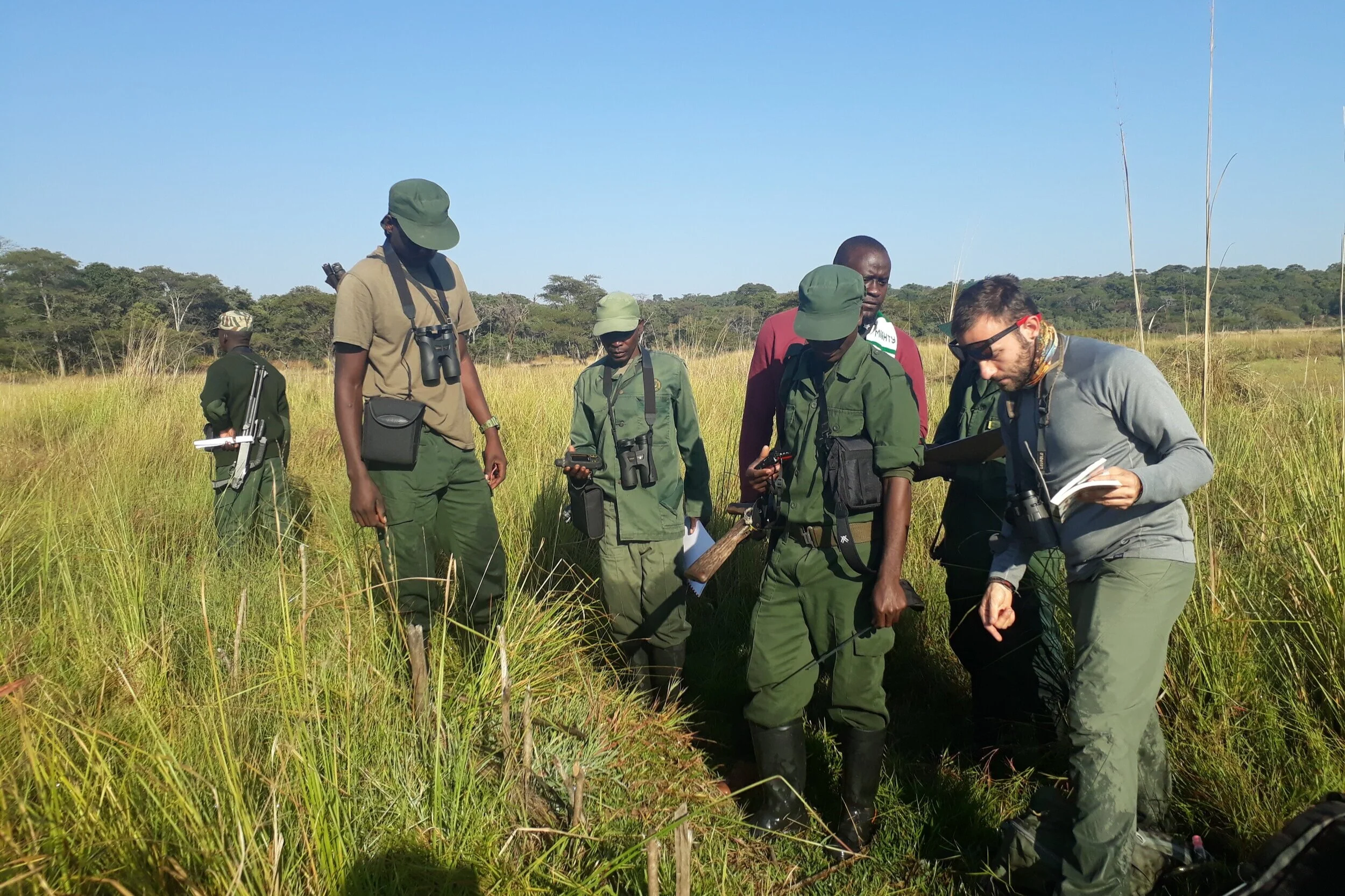“The various partnerships between DNPW, Traditional Leaders, Community Business Units and the West Lunga Conservation Project aims to restore the West Lunga ecosystem to its full ecological potential and create an environment where wildlife and conservation based economies can thrive.”
- Dorian Tilbury, Park Manager, West Lunga Conservation Project
The Mission
The West Lunga Conservation Project (WLCP) was conceived in 2014 through a collaborative partnership between the Department of National Parks and Wildlife (DNPW) and the Trident Foundation with funding from Kalumbila Minerals Ltd., a subsidiary of First Quantum Minerals. WLCP was incorporated in 2019 and now works with DNPW and local communities to enhance the management of the area with funding and support from the First Quantum Minerals (FQM) subsidiaries, the Worldwide Fund for Nature (WWF), and the Nature Conservancy (TNC). The plan for the West Lunga ecosystem is to maintain the ecological services and restore the wildlife populations in order to promote a wildlife industry in the surrounding communities.
The West Lunga Area Management Unit (WLAMU) is situated in Mwinilunga, Mufumbwe, Manyinga and Kalumbila Districts of north-western Zambia and is approximately 11,754 square kilometers. The WLAMU encompasses the West Lunga National Park, Chibwika Ntambu, Musele Matebo, Lukwakwa and Chizela Game Management Areas (GMAs).
The primary objective of the project is to restore the WLAMU to a complete and functioning ecosystem representing historical mammal populations that can stimulate a “Conservation Based Economy.” This entails the formation of a variety of Community Business Units that have full usage and managerial rights to their GMAs to facilitate the generation of revenue through Community Game Ranching, Tourism, Sustainable Honey Production, Non Timber Forest Product Commercialisation and Carbon Offset Trading.
The WLAMU once supported large populations of a multitude of species including elephant, buffalo, sable, roan, Lichtenstein’s hartebeest, lion, leopard and wild dog. It is now a skeleton ecosystem that has been rendered “biologically barren” through years of neglect. The various partnerships between DNPW, Traditional Leaders, Community Business Units and the West Lunga Conservation Project aims to restore the WLAMU to its full ecological potential and create an environment where wildlife and conservation economies thrive.
Law Enforcement
Park Management
The West Lunga Conservation Project provides vital resource and training support to a team of 120 law enforcement personnel across West Lunga. They conduct over 40 operations per month on land and water. Since 2014, almost 17,000 snares have been removed and 200 illegal firearms confiscated.
WLCP works with DNPW to better understand the ecological processes that drive West Lunga and implement measures to mitigate negative impacts. Fire suppression, improved access, wildlife monitoring and ecological research are all supported by WLCP and predominantly driven through the WWF Upper Zambezi Programme.
Wildlife Monitoring
Infrastructure Development
DNPW, in partnership with WLCP and WWF, conduct annual wildlife ground counts using foot transects. Two elephants and two buffalo have been fitted with GPS tracking collars, allowing park management to understand their movements and distribution. A camera trap network is also in place to monitor wildlife activity.
WLCP have supported DNPW with the construction of wildlife camps, offices, bridges, roads and communications systems in order to access and manage the ecosystem. Ongoing projects include staff housing, control rooms, storage facilities, workshops and satellite camps.
Partnerships
Department of National Parks and Wildlife
The Department of National Parks and Wildlife are the principle authority responsible for the management and oversight of the protected area network of Zambia. They are within the Ministry of Tourism and Arts in the Government of the Republic of Zambia.
World Wide Fund for Nature
WWF Zambia was established in 1962 to support conservation of natural resources in Zambia. The Upper Zambezi programme aims at ensuring a resilient wetland system at a landscape level to safeguard ecosystems and communities reliant on the resource.
First Quantum Minerals
First Quantum Minerals is a global copper mining company. First Quantum Minerals, through two subsidiaries, operates two large scale open pit copper mines in north western province of Zambia. The First Quantum Minerals subsidiaries, Kansanshi Mining PLC. and Kalumbila Minerals Ltd., are the principle donors for the West Lunga Conservation Project. They are the first mines in Zambia to make such a long term commitment to conservation of natural resources beyond the sites that their mines impact. This sets a new standard for private sector conservation support in Zambia.
Trident Foundation
The Trident Foundation is a Zambian company limited by guarantee that was established in 2014. The mission of the Foundation is to support social and ecological development in north-western Zambia through health, education, agriculture, local business development, livelihood support, and wildlife and biodiversity conservation initiatives. The primary donor for the Foundation is Kalumbila Minerals Ltd., a subsidiary of First Quantum Minerals.
Nature’s Nectar
Nature’s Nectar is a honey company aiming to produce Zambia’s most sustainable honey by providing top bar beehives and a premium market for all honey produced. Nature’s Nectar works around multiple conservation areas in Zambia providing livelihoods that help preserve the environment for a sustainable future.












